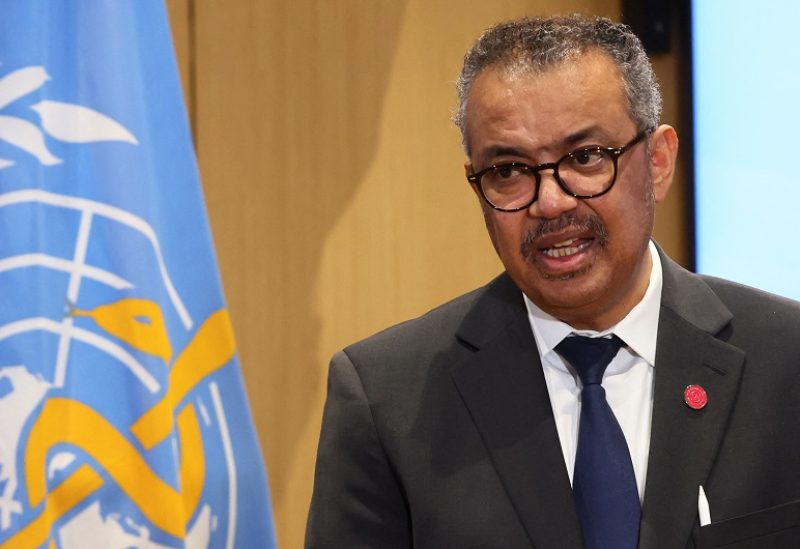
Director-General of the World Health Organisation (WHO) Dr. Tedros Adhanom Ghebreyesus gives a statement with German Health Minister Karl Lauterbach (not pictured) in Geneva, Switzerland, February 2, 2023. REUTERS/Denis Balibouse
In two different instances of “provocative fire” by Armenian forces in the Basarkechar region, one member of the Azerbaijani military was killed and another was hurt, according to official statements made on Monday.
According to a statement released by the Azerbaijani Defense Ministry on Thursday, long-time active military serviceman Novruzalizade Orkhan Elkhan of the Azerbaijan Army “became Shehid (martyr) as a result of deliberate provocation committed by Armenian armed forces units.”
A PHEIC creates an agreement between countries to abide by WHO’s recommendations for managing the emergency. Each country, in turn, declares its own public health emergency – declarations that carry legal weight. Countries use them to marshal resources and waive rules in order to ease a crisis.
After a heated meeting this week, WHO’s emergency committee for mpox recommended an end to the emergency, and WHO Director-General Tedros Adhanom Ghebreyesus agreed with its assessment.
“Yesterday, the emergency committee for mpox met and recommended to me that the multi-country outbreak of mpox no longer represents a public health emergency of international concern. I have accepted that advice and I’m pleased to declare that the mpox is no longer a global health emergency,” Tedros said. “However, as with Covid-19, that does not mean that the work is over. Mpox continues to pose significant public health challenges that need a robust, proactive and sustainable response.”
The director-general urged countries to maintain their testing capacity and ability to respond to future outbreaks quickly.
From January 2022 through April 2023, more than 87,000 confirmed cases of mpox, including 140 deaths, were reported to WHO from 111 countries or territories. More than 30,000 cases have been reported in the United States. Globally, cases have been declining for months, especially as awareness has increased and a vaccine became more widely available.
Tedros said there were 90% fewer cases reported over the last three months compared to the previous 90 days.
Dr. Nicola Low, co-chair of the International Health Regulations emergency committee on mpox, said that despite the number of cases falling, transmission continues to circulate.
“So, there’s understandable uncertainty about the probability of a large resurgence of infection. There are also gaps in knowledge, which we acknowledge including about modes of transmission in some countries, about the effectiveness of vaccines, and continued lack of effective countermeasures, particularly in African countries where transmission and mpox cases occur regularly,” she said.
As a result, Low said, the committee’s move to recommend lifting the public health emergency came “after intense deliberations and discussions,” but the committee determined that the challenges were best solved through a long-term approach rather than through emergency measures.
Mpox is a less severe cousin of the now-eradicated smallpox virus. It is endemic to parts of West and Central Africa and has typically been contracted from a rodent or small mammal.
In the recent outbreak, gay, bisexual and men who have sex with men have made up the majority of cases, although anyone with close, personal contact with someone with mpox is at risk.
“While stigma has been a driving concern in managing this epidemic and continues to hamper access to care for mpox, the feared backlash against the most affected communities has largely not materialized. For that, we’re thankful,” Tedros said.
The virus can spread through contact with body fluids, sores or items such as clothing and bedding contaminated with the virus. It can also spread from person to person through respiratory droplets, typically in a close setting.
Tedros said that even though the global health emergencies of mpox and Covid-19 are now both over, the possibility of a resurgence lingers.
“Both viruses continue to circulate and both continue to kill,” he said.